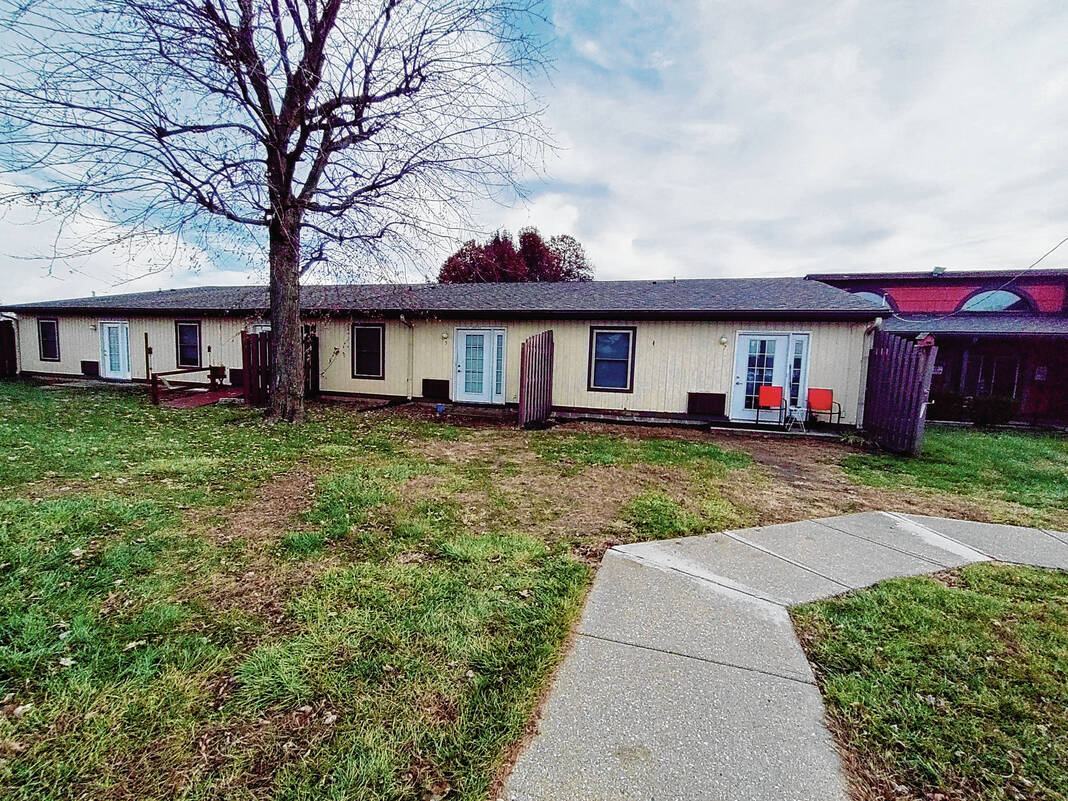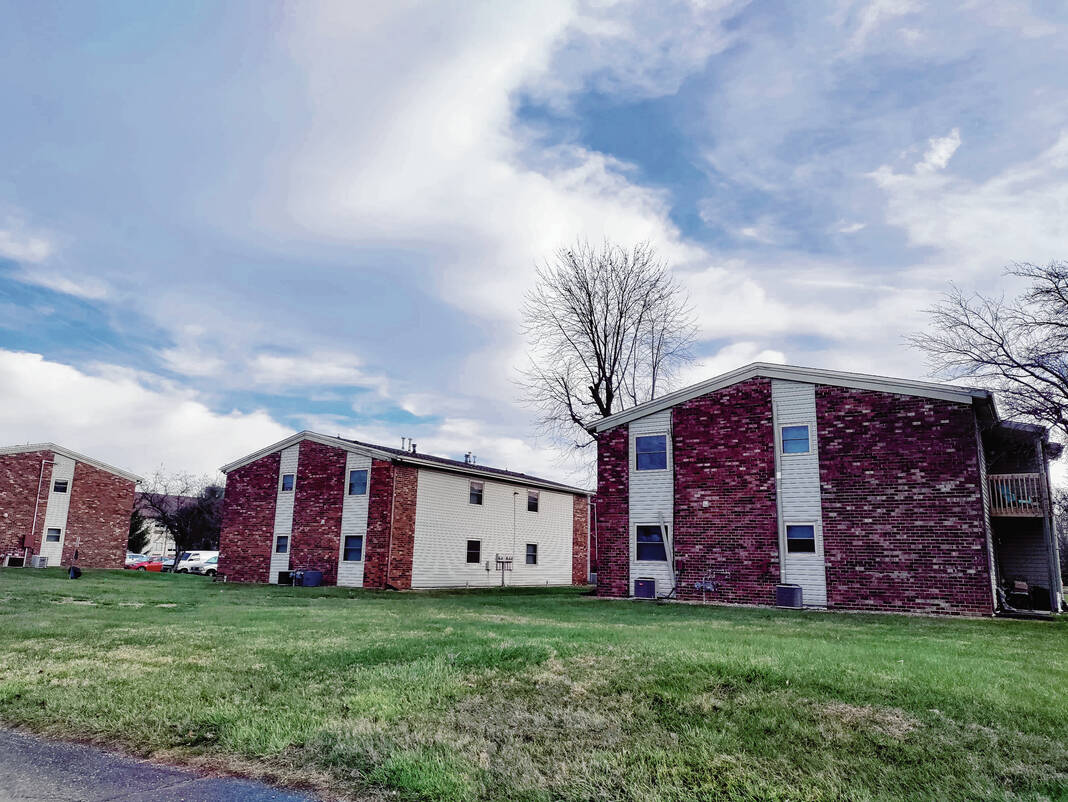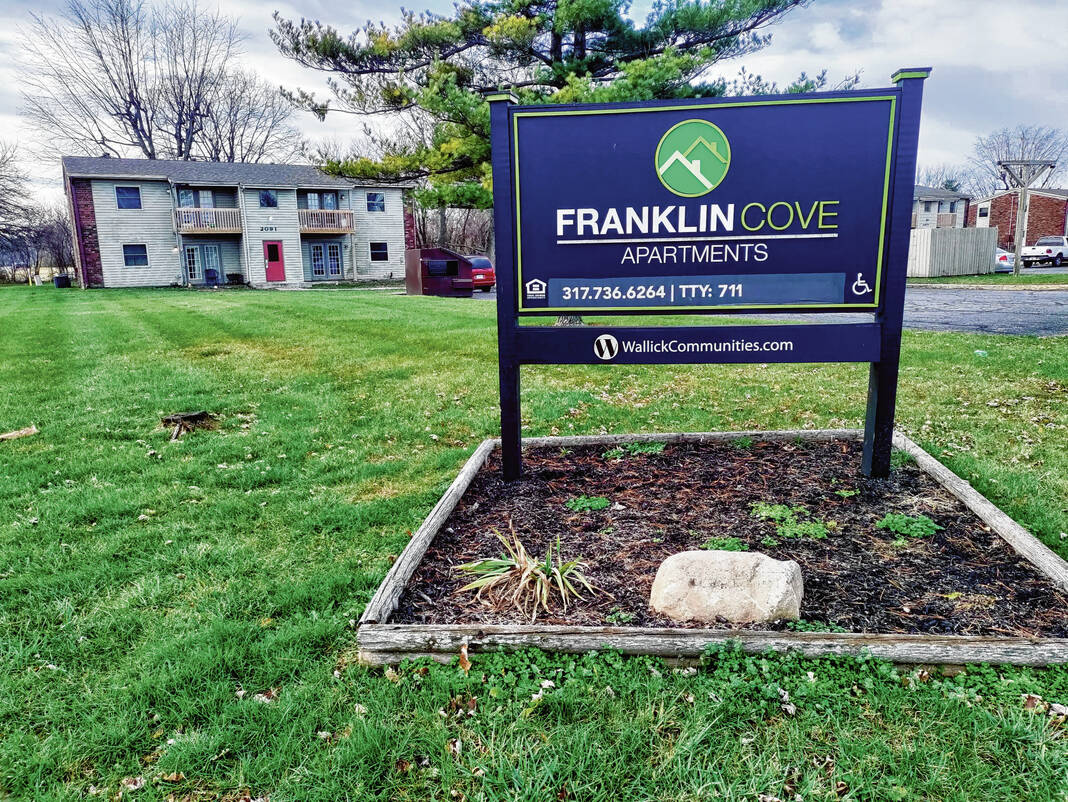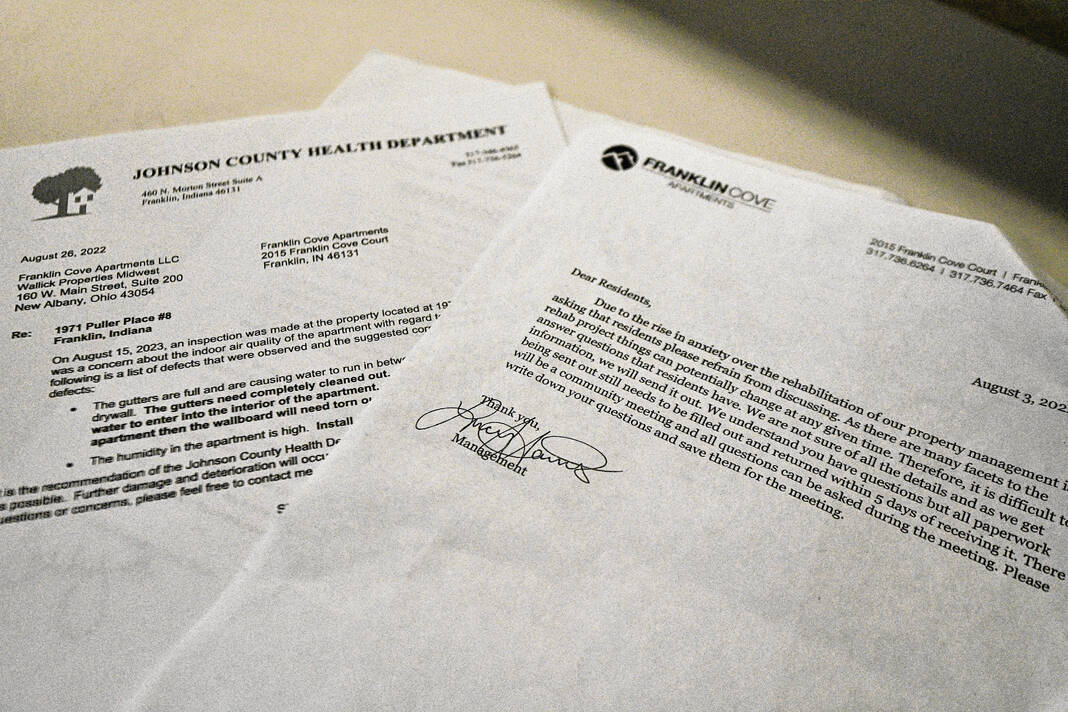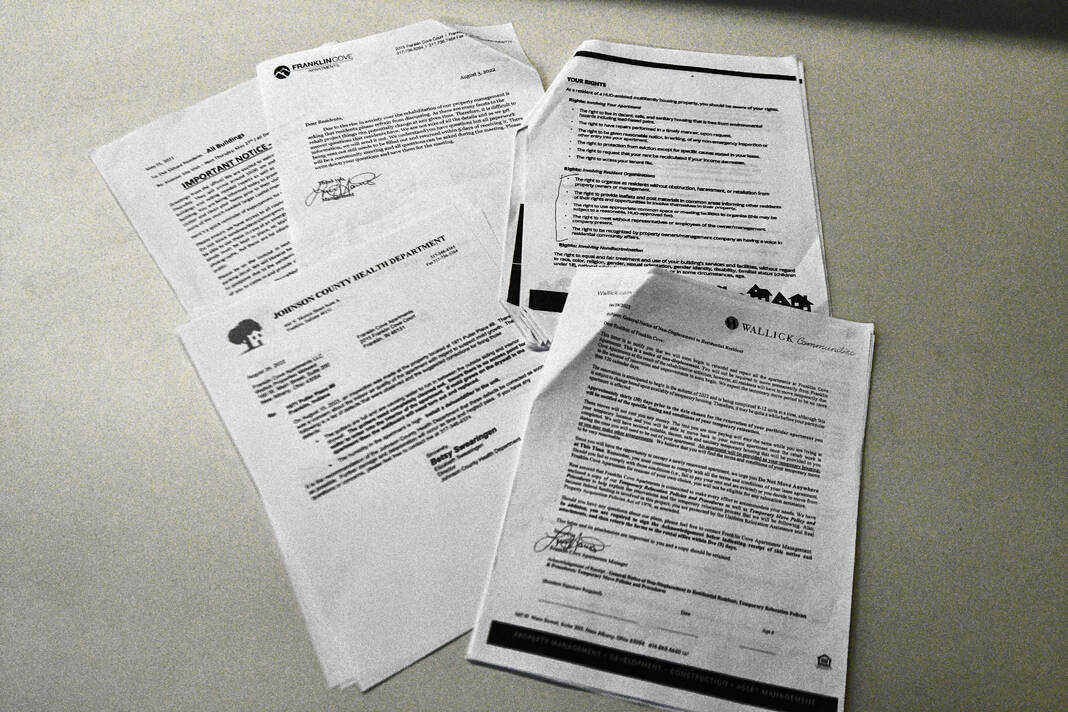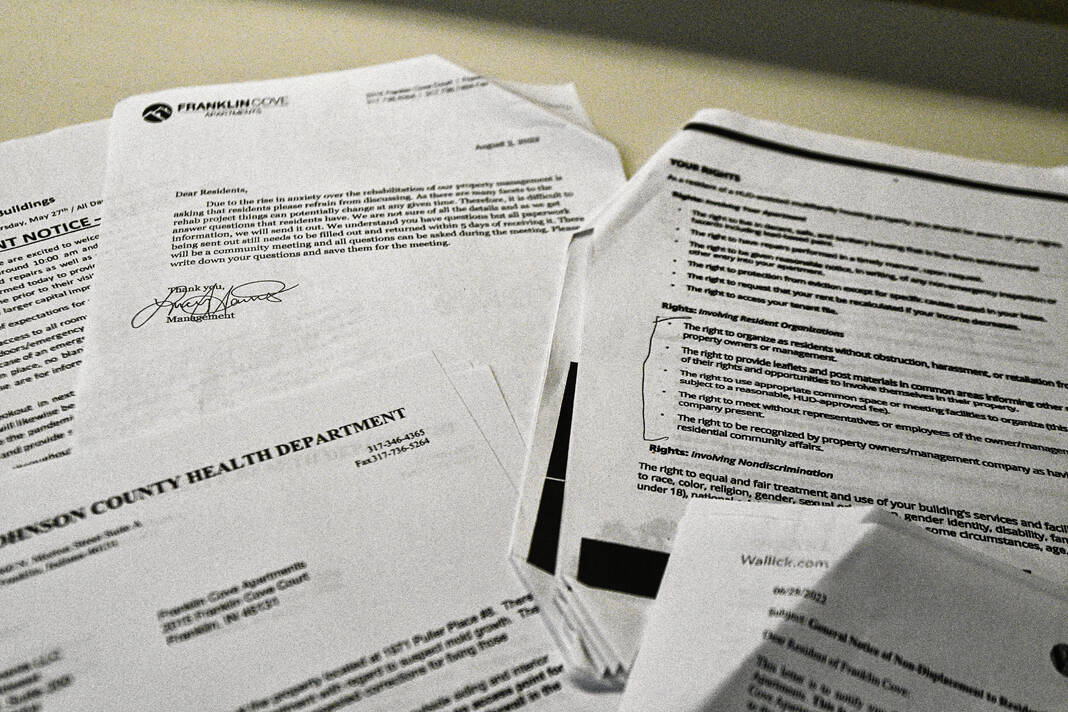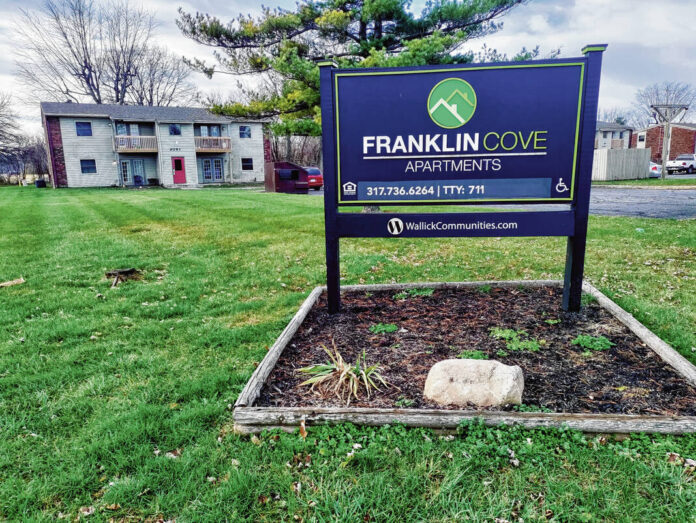
Wallick Communities was given $16 million to rehabilitate Franklin Cove Apartments starting this fall, but residents haven’t received an updated timeline for the renovations.
ANDY BELL-BALTACI | DAILY JOURNAL
For months, residents of a Franklin apartment complex have been left in limbo.
A $16 million dollar renovation project to rehabilitate Franklin Cove Apartments is scheduled, but residents don’t have a clear answer when it will start.
Residents know they will have to leave for the construction project, but the company has not been clear about when they will have to leave. Though they are being promised temporary housing, they don’t know where the housing will be or if it will fit their lifestyle.
The project
Franklin Cove Apartments has extensive issues with disrepair, mold and temperature and humidity regulation, residents say and Johnson County Health Department records show. The renovation project is expected to eliminate those problems and give residents a clean slate.
The Indiana Housing and Community Development Authority, or IHCDA, awarded a tax credit from the 2022 Low-Income Housing Tax Credit, or LIHTC, program for Franklin Cove’s rehabilitation. The money is from a program administered by the U.S. Department of Housing and Urban Development.
The owner of Franklin Cove — New Albany, Ohio-based Wallick Communities Asset Management — announced plans to invest $16 million to rehabilitate 108 units at the property late last year. The company was awarded a $1.2 million tax credit and $500,000 for the property’s development fund.
Residents received a notice of non-displacement on June 28 and they were told at the time the renovation would begin in the fall. The renovations would require them to move from their current apartments while the fixes took place, after which they’d be able to move back to Franklin Cove, according to documents obtained by the Daily Journal.
During a meeting on Sept. 20, officials from the apartment complex told residents the same information and told them they would give residents details on the location of temporary housing when they issued a 30-day notice to temporarily vacate their apartments.
Residents say they haven’t heard anything from Wallick Communities, and officials from Wallick don’t have any updates.
No news for residents
The lack of communication has left residents feeling on edge. The Daily Journal spoke with three residents who were granted anonymity for fear of retaliation or eviction from the apartment complex.
“We have heard nothing about any of this. We’ve only heard what we’re supposed to do: start packing up,” a resident said. “They gave us paperwork about what their plans are, but we have no idea where we’re going to live yet.”
A second tenant said they haven’t received any information from Wallick since the September meeting.
“They give you no dates, or if they give you a date they won’t swear by it,” another resident said.
As of Nov. 29, Wallick Communities had not finalized a location for residents to be temporarily housed and was uncertain of the timeline for the move-out process, Stephanie Tresso, a spokesperson for the company.
“The final relocation plan and timeline have not yet been established. Under (HUD) rules, residents will receive 30-days’ notice about relocation details,” Tresso said in an email. “There was an initial resident meeting about the rehabilitation on Sept. 20, 2022. All the details that were known about the project, at that time, were shared with residents at the meeting.”
One resident came to a November Franklin Common Council meeting looking for answers. Mayor Steve Barnett told the resident all city permits needed had been issued for the project. At the time he believed the hold-up was on IHCDA’s end.
Since then, state officials have awarded Wallick communities the money for the renovation. The project’s timeline is in Wallick’s control, said Alan Rakowski, real estate allocation director for the IHCDA.
“Our organization awarded the financing for this project in low-income housing tax credits and a loan called the development fund which awarded capital tax credits over the course of 10 years,” Rakowski said. “Since the loan was approved by the board, it’s in (Wallick’s) hands to move forward to complete the development. If they experience delays, it’s in their hands.”
Wallick has had to work with a multitude of agencies, which has slowed down the process, Tresso said.
“All publicly-funded projects, including those using Low Income Housing Tax Credits, are complicated and involve multiple agencies and organizations,” she said. “These complexities can slow down a project.”
‘Refrain from discussing’
A Franklin Cove property manager sent residents a letter on Aug. 3 asking them not to speak to each other about the upcoming renovations.
“Due to the rise in anxiety over the rehabilitation of our property, management is asking that residents please refrain from discussing,” the letter says. “As there are many facets to the rehab project, things can potentially change at any given time. Therefore, it is difficult to answer questions that residents have. We are not sure of all the details and as we get information, we will send it out.”
Urging tenants not to communicate, however, violates tenant rights, according to HUD rules. Those rights include “the right to organize as residents without obstruction, harassment or retaliation from property owners or management,” along with “the right to use appropriate common space or meeting facilities to organize.”
The letter did not have the intention of intimidating residents, Tresso said.
“The intent of the letter was to encourage residents to attend the upcoming information meeting, which was held on Sept. 20, and have their questions answered by Wallick representatives at it,” she said.
Residents said they feel the letter was a violation of their rights.
“They told us not to talk to each other,” one resident said. “We have the right to organize as residents without obstruction, harassment and repercussions.”
This letter was one factor in the Daily Journal’s decision to grant residents anonymity.
Residents out of options
Franklin Cove is rent-controlled, meaning tenants pay no more than 30% of their adjusted income on rent and utilities. Many of its residents do not have a steady income or cannot work due to disabilities.
From August 2021 to September 2022, nine inspections by the Johnson County Health Department resulted in more than 20 health violations listed. Those violations included mold, HVAC units in disrepair, leaky ceilings, and carpet and patio doors noted as being in “poor repair.”
With few affordable options nearby, residents have been essentially forced to stay in their apartments though the conditions are poor. They say there is a lack of alternative housing they can afford in Johnson County.
The violations are because Franklin Cove has had difficulty retaining maintenance staff, said Betsy Swearingen, director of the Johnson County Health Department. The issues have been going on both pre- and post-COVID-19, she said.
“They cannot keep a maintenance person and therefore they just don’t have the ability to fix small repairs. If there is a larger repair, they reach out to a vendor and are at the mercy of the vendor’s time frame,” Swearingen said. “As of late, a lot of what we’ve been told is, there’s a multi-million dollar renovation plan and unless there’s a need for gas, water or electricity, nothing would be fixed until the renovation takes place.”
The health department does not have the power to intervene with Wallick’s operations, and can only strongly recommend certain measures be taken, she said.
Franklin Cove currently has one full-time maintenance person, causing some repairs to take a longer time to address, Tresso said.
“There have been no changes to Wallick’s process to respond to residents’ service requests. However, like many employers in Franklin, around Indiana and across the country, Wallick has been impacted by labor shortages,” Tresso said. “These shortages have contributed to longer response times to service requests. Wallick is working hard to hire additional associates and to return to full staffing levels. Emergency requests move to the front of the line and are addressed right away.”
Tenants hope the issues can be resolved once the apartments are renovated, but for now, they are waiting.
“I’m frustrated because we knew we had to move but weren’t told when,” a resident said. “We don’t know where we’re going to go.”


